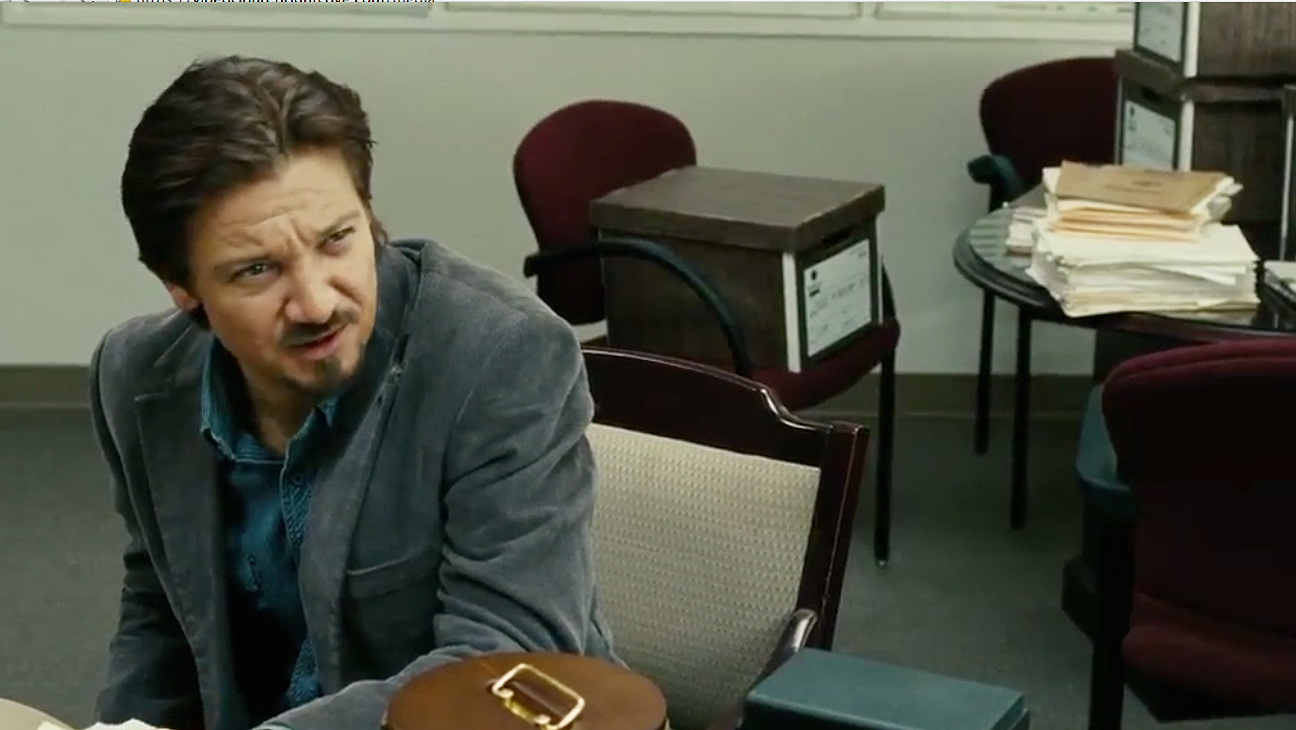Investigative journalism seems like a nightmare as an occupation. Yes, you get to stand on the moral high ground, but that ground is constantly under attack from people who don’t want their story to get out, or worse, if the story does get out. Kill the Messenger expands the would be coda of all the investigative reporter movies with a fascinating question: what happens to the do gooder and evil doer once the lie gets exposed? Kill the Messenger bleakly paints the reveal as only the beginning of a lengthy defense process of the information you worked so hard to obtain. It gives proper insight to the courage of these journalists, and to the methods in which a powerful organization will do anything to protect their interests.
Gary Webb (Jeremy Renner) is an investigative reporter for the San Jose Mercury News. Relocating with his kids and wife Sue (Rosemarie DeWitt) after a terrible previous job experience, Gary is eager to break the big story. He stumbles upon it after running into a woman named Coral (Paz Vega), who read his work and wants his help getting her boyfriend out of prison. In return, he uncovers a story about a government agency allowing the smuggling of crack cocaine into the United States: his big break. Webb digs in with the aid of his editor Anna (Mary Elizabeth Winstead) and her boss Jerry (Oliver Platt). He uncovers major players and puts the pieces in place to write a hell of story that earns him journalist of the year. However, Gary’s insistence to publish the story draws the ire of the government, which uses its many resources to eliminate the story’s power, including diving deep into Gary’s personal life.
Could this be a more relevant story in the Age of Edward Snowden? It’s almost chilling to see the government use similar techniques to smear a whistleblower. The journalist’s motives are questioned. Excuses are made up to extract the reporter’s breadth of knowledge. Nonexistent claims are made through other trusted media outlets. And most importantly, the whistleblower BECOMES the story. Personal lives become topics of conversation (remember Snowden’s girlfriend and her pole dancing YouTube channel?). The story would have benefitted from more of a study of how to bury a damaging report, since it is a story rarely told in film. Director Michael Cuesta (mostly a TV director) instead, probably wisely, elects to keep the focus on Gary. Making Gary the eye of the tornado shows just how many attacks come from unexpected places. He probably could have guessed that the story about his past job would have come up, but his son finds out, creating another world of onslaughts he never saw coming. The victories of breaking the story in the first half of the film little by little come crashing down as Gary becomes wholly defeated. Kill the Messenger purports that at some point, the cost of the truth is just too great, a chilling message for anyone wanting to become an investigative journalist.
By telling the story entirely from Gary’s point of view, Kill the Messenger is basically a two act tonal play. The first half is quite inspirational: Gary seems like a family guy and a fairly clever journalist. He uses moral grey areas to obtain information and sources. You see him ride the high of the story and bring his family and newspaper along for the ride. This half plays like All the President’s Men. Then, as we gather what the government will do to Gary, the bombs start dropping, and the tone turns into sadness and slow-developing paranoia. Is that a shadowy figure by his car? Why do Gary’s files look like they’ve been played with? Why would the government mention not hurting his kids? Where did Gary’s sources disappear to? The high in the first half generates the deep plunge that befalls the poor San Jose reporter. The tonal shift gives Kill the Messenger added perspective since it hits Gary so unexpectedly and fiercely.
Jeremy Renner used his Hollywood clout to get this movie made. Renner is the dogged everyman here: a nice flawed guy who gets in over his head with the wrong people. Renner keeps the guy grounded despite all the frustration around him, using his talents most as isolation and determination cloud Gary’s judgment. Rosemarie Dewitt gets the thankless role of put-upon wife and does her best to give it some power; she at least gets to be the strong one, selling her and Renner’s relationship (not much sizzle though). Surrounding the husband and wife are character actors used to help identify key players. Paz Vega, Ray Liotta, Andy Garcia, and Tim Blake Nelson leave the best impressions.
Eventually, Gary Webb’s story was proven true by John Kerry and a Senate Subcommittee. Smartly and coldly, the government released the 400 page confession at the height of the Lewinsky Scandal, when no one cared. Though Gary Webb’s life ends tragically, it is good to know that his report saw one high ranking government official meet with the people of Los Angeles and eventually resign because of the contra scandal. Kill the Messenger still resonates today with Edward Snowden. Knowing he was going to become the story, Snowden spread the documents to many credible journalists to release the information to the best of their ability. This kept the smear campaign from having a lasting effect, and forced the whistleblowing to have long lasting repercussions. Thank you Gary Webb, for risking everything to teach an important lesson about how to break a damaging story about someone in power. Investigative journalists, heed Kill the Messenger’s stern warning about the consequences of truth.

